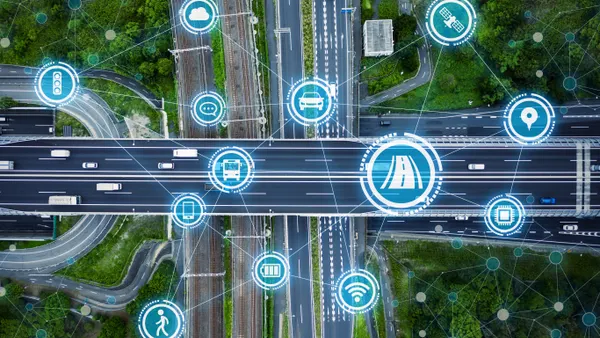Editor's Note: The following is a guest post from Orla Pease, vice president of digital innovation at AECOM.
More than 5.2 million Americans filed for unemployment last week, bringing the total number of jobless claims to around 22 million in the last month, all as a result of the COVID-19 pandemic.
One way we can help soften the impact of the pandemic is to enable people to continue working and contributing to their families and the economy — all while adhering to social distancing directives. Moving civil infrastructure projects into the cloud is a simple step that companies and agencies can take to keeps projects running, people working and the economy moving during this unprecedented crisis.
As one of the oldest industries in the world, the civil engineering and construction (E&C) sector has a reputation for lagging other industries when it comes to digitization and virtual design. Companies that embrace digital technologies to improve how they do business, rather than to ride the wave of digital transformation and keep pace with the competition, often fare much better with these initiatives.
I have firsthand experience of the power of digital transformation born out of the need to collaborate across a global organization, and the results have not only brought us closer to our colleagues but to our clients as well.
The coronavirus pandemic has accelerated the need to adopt digital ways of working and has made it clear that E&C cannot afford to rest on the laurels of traditional ways of working or be satisfied with the occasional digital innovation. We must make changes, quickly, to become digitally resilient — and that starts with transitioning civil infrastructure projects from local servers to the cloud.
This simple step can keep civil infrastructure projects moving so they will be ‘shovel -ready’ when recovery begins, helping to keep America working now and when the crises subsides. E&C companies that are solidly on the path to digital transformation are uniquely positioned to bring their clients along on the journey, and it all starts with a cornerstone of digital resilience: the cloud.
It’s time the industry stops perceiving the digital transformation as an experiment in competitiveness, and instead sees it as a necessity of resilience. The term "digital transformation" itself can have the impact of analysis paralysis – seeming to mean that everything in an organization must transform. Rather than trying to go digital all at once or in fragmented efforts, focus first on enabling virtual collaboration and digitizing civil infrastructure projects so we can keep working and keep the economy moving during the coronavirus pandemic.
To keep up with all of our coverage on how the new coronavirus is impacting U.S. cities, visit our daily tracker.









